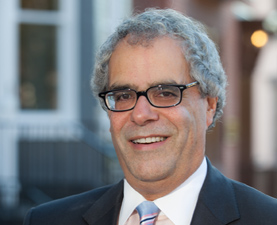By: Charlie Gerow
Another Republican debate. Another record audience..
 Contrary to the pooh-poohing of some in the media and many on the Left, the Republican debates are anything but the snoozers the Democrats served up a few weeks ago.
Contrary to the pooh-poohing of some in the media and many on the Left, the Republican debates are anything but the snoozers the Democrats served up a few weeks ago.
Following closely on the heels of the Boulder, Colo. debate just 12 days before, last week's event, held in the beautiful Milwaukee Theatre, captured 13.5 million viewers including 3.7 million in the vital 25-54 demographic.
It was the most watched event in the history of the Fox Business Network which hosted the event along with the Wall Street Journal.
In addition to the huge live television audience the Milwaukee debate was also the most watched live-streaming primary event ever with nearly 1.5 million simultaneous streams.
That beat out even the NBC's Super Bowl live-stream.
Hosted by FBN's Neil Cavuto and Maria Bartiromo and the WSJ's Gerard Barker, it was also a big hit in social media. Nielsen Social ranked it Number One on Twitter with more than 6 million tweets and 180 million impressions.
So much for lack of interest and boring content.
The Lefts continuing use of their worn-out characterization of the Republican field--that it's a bunch of xenophobic old white guys waging a war on women--couldn't be further from reality.
Three of the top four GOP candidates are people of color. The only woman candidate other than Hillary Clinton is on the Republican main stage. There's far more diversity on display across the fifteen GOP candidates than the Democrats could hope for themselves.
Both those who participated in the "happy hour" debate and the main event got an even shot at displaying to a national audience both their views and leadership abilities.
Unlike the CNBC-hosted event a few days earlier, the moderators were not the focus of the evening; the candidates were.
New Jersey Gov. Chris Christie dominated the first debate by forcefully focusing his fire on Hillary Clinton. His performance may give him a lift back onto the main stage from which he was bumped. It's unlikely that any of the others in the "jayvee game" will join the main event in Las Vegas a month from now.
When the candidates took the stage for the featured event, this time there were only 8 instead of the previous 10 or 11.
That allowed more time for each to speak and a better chance for viewers to see interactions between the candidates.
For nearly two hours they discussed the economy and jobs with an occasion foray into foreign policy. When it over not much had occurred that will change the course of the race. At least not for right now.
Some of the "winners" may see a slight bounce, but the polling will likely level back with one possible exception. Ohio Governor John Kasich came to the show looking to mix it up and install himself at the center of the controversy.
Instead he tended to look short-tempered and delivered the undeniably worst line of the night when pressed on big bank bailouts. "...I would figure out how to separate those people who can afford it versus those people, or the hard working folks who put money in those institutions." When you're booed by a Republican audience, you're not having a good night.
Marco Rubio, Carly Fiorina and Ted Cruz all had very good nights, each displaying their debating skills in flourishes. Jeb Bush has steadily improved in the last two debates although he remains unimpressive on the debate stage. He'll depend on his organizational and financial strength to carry him, not his rhetorical abilities.
Donald Trump and Ben Carson were not the central focus of this debate. That may have been good for both since neither have dazzled audiences with their command of policy thus far.
Their numbers will likely remain relatively stable, although Trump appears to be wearing thin on some voters and lingering questions about the veracity of Ben Carson's autobiography may re-emerge before the next debate.
Rand Paul performed at a much higher level than in the early debates. His contrast on foreign policy with the rest of the field likely helps him short term as he tries to solidify his base but may prove to be a problem further down the road.
Sen. Ted Cruz grabbed the microphone the most, effectively using his 13 1/2 minutes, almost 2 minutes more than the next biggest talker, John Kasich, who didn't use his time particularly well. Less than 2 minutes of speaking time separated the rest of the field.
Speaking time was dominated by the candidates, not the moderators. At the outset Neil Cavuto said the issues would be the focus. He kept his promise.
So the biggest winners may have been FNB and The Wall Street Journal and their moderators who scored big by staying out of the spotlight and letting voters hear from the candidates.

